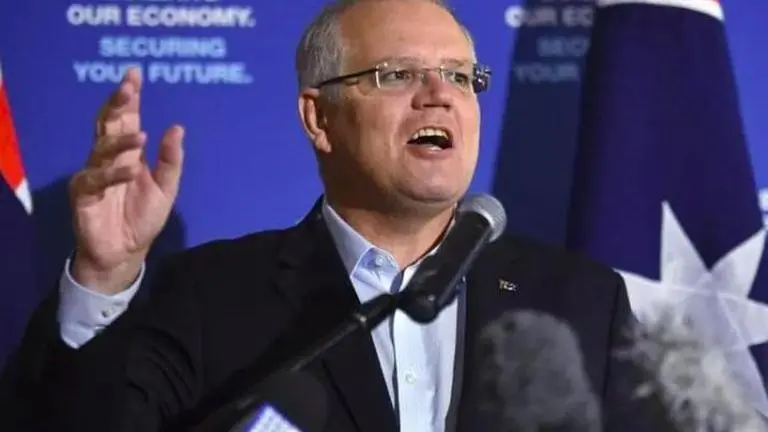Updated 14 December 2020 at 03:28 IST
Australia adamant about not using controversial Carbon Credits for Kyoto protocol goals
The Australian government, according to its Kyoto Protocol goals, had committed to reduce greenhouse gas emissions to 26 to 28 percent below 2005 levels by 2030
- World News
- 2 min read

Australian Prime Minister Scott Morrison on Sunday, December 13 said that he was "very confident" that Australia will achieve its 2030 emissions-reduction targets under the Kyoto Protocol without using the controversial Australian Carbon Credit Units (ACCUs). Morrison reiterated his country’s commitment to the Paris Climate Accord, saying that Australia cut down 459 million tonnes of carbon emissions and "improved" in terms of achieving its 2030 target over the last two years. He added that the carbon emission level in Australia was below 17 percent of what it was in 2005.
In his speech to the Pacific Islands Forum, Australian PM stated that his nation would not have to carry-over credits that it earned from "overachieving" its Kyoto-era commitments, a Bloomberg report confirmed. His remarks come as the leaders of 38 countries came together to discuss measures and action plan to reduce greenhouse-gas emissions at the United Nations Climate Action Summit. The Australian government, according to its Kyoto Protocol goals, had committed to reduce greenhouse gas emissions to 26 to 28 percent below 2005 levels by 2030.
Advertisement
Ready to 'meet and beat' target
"Australia outperformed its Kyoto Protocol first commitment period target (2008–2012) and is on track to meet and beat its 2020 target," the Australian government claimed in a report. It added that country’s emissions per capita declined by 19 percent since 2000 and by 22 percent since 2005. Australia has committed to phasing down hydrofluorocarbons, enhancement in the utilisation of solar power, use of a low emissions technology, and implementation of National Energy Productivity Plan as its key goals for the 2030 target policy framework.
Meanwhile, according to reports, Australia is the world’s third-biggest emitter per person. While Morrison attempted to convince the Pacific Island Forum leaders with his commitments Richie Merzian, climate and energy director at the Australia Institute reportedly said that PM Morrison’s climate ambition did not align with actions as he largely invested in clean coal technologies.
Advertisement
Published By : Zaini Majeed
Published On: 14 December 2020 at 03:28 IST
